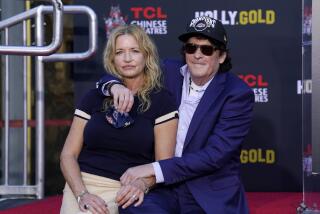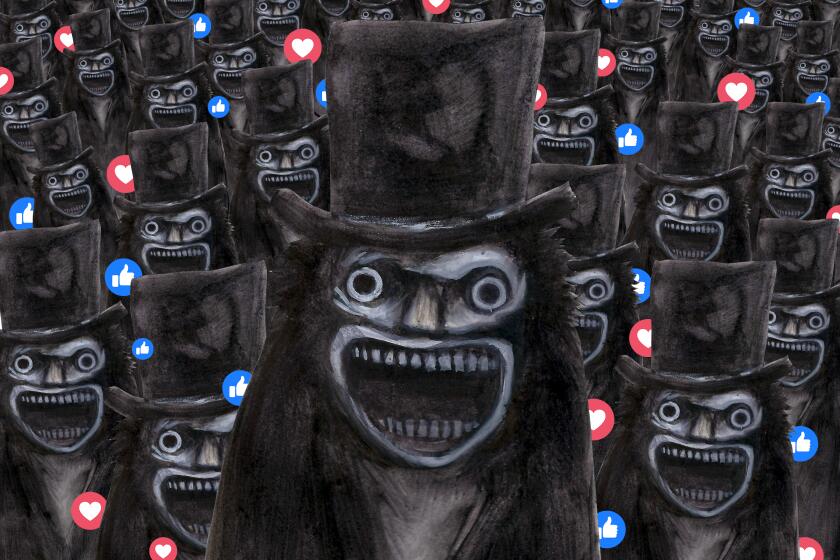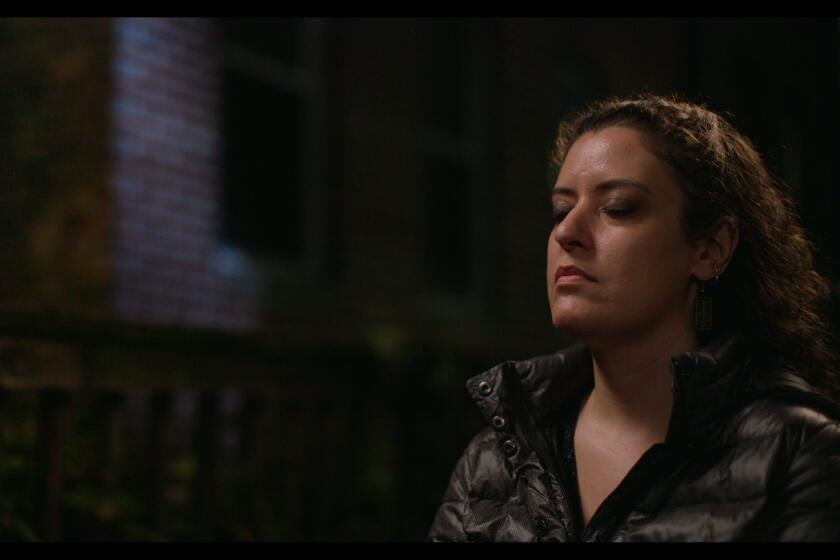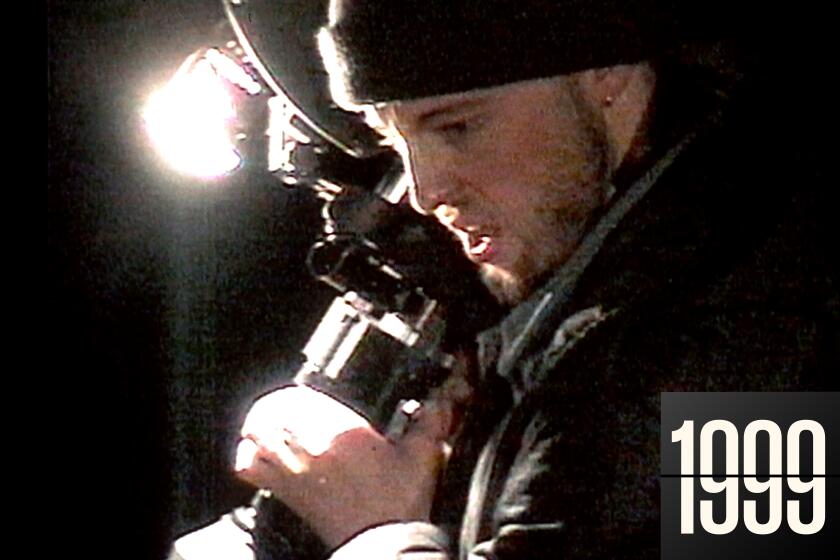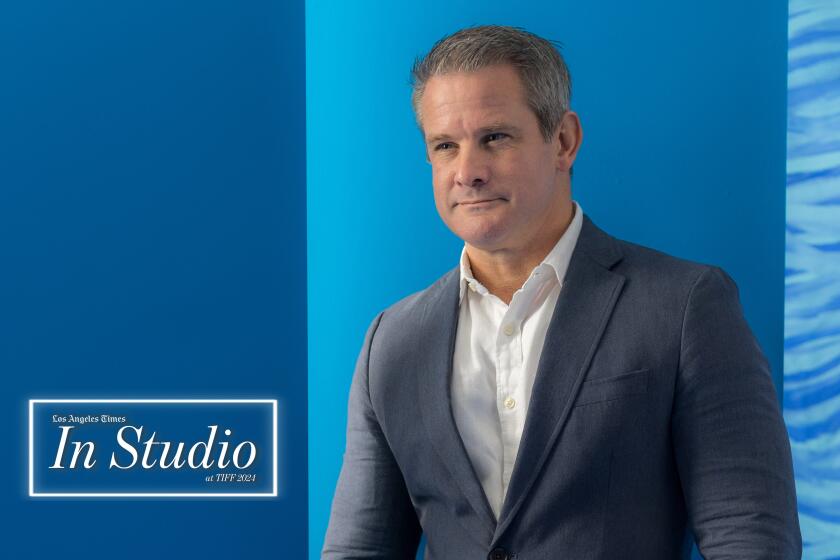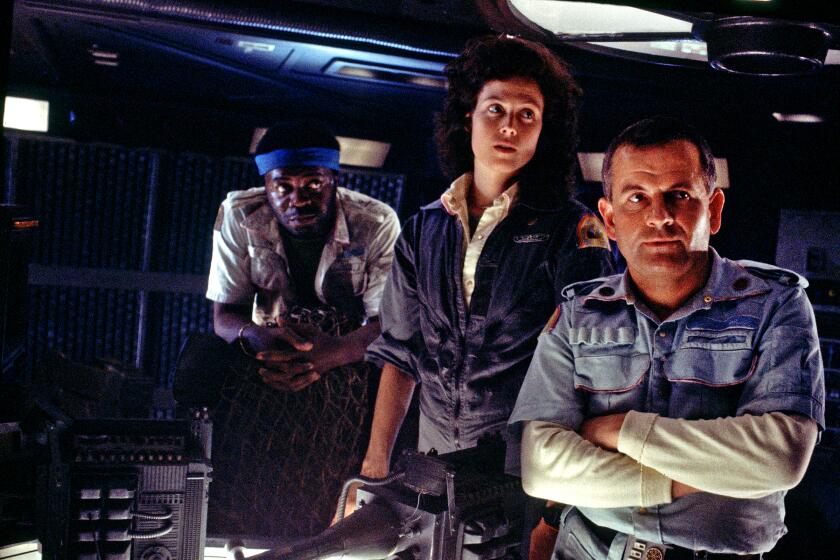DIRECTOR’SCRAFT
“It FEELS kind of miraculous being here and kind of surreal,” Jennifer Lynch said as she picked on a light lunch Wednesday afternoon, just hours before her official reemergence from a long stretch in the wilderness. “Surveillance,” Lynch’s second feature as director -- and her first since 1993’s much-derided amputee fairy tale “Boxing Helena” -- was scheduled to have its world premiere as a midnight screening at the Cannes Film Festival later that night.
A twisty thriller with an unabashedly nasty streak and an almost theatrical taste for excess, the movie stars Bill Pullman and Julia Ormond as FBI agents investigating a massacre in the flatlands of Nebraska, where they must contend with the dim local cops and a host of highly unreliable witnesses. (Magnet Releasing, which acquired the film just before Cannes, is set to open it later this year.)
“Surveillance” originated as a screenplay by Kent Harper (an actor who has a supporting role in the film), but Lynch, who has a co-writing credit, tailored it to match her interests. “Originally, it was about witches,” she said. “But what I gravitated to were the elements of desolation and the idea of people watching each other. I also liked the idea of a thriller that right from the get-go lets you in on the fact that all these people are lying.”
Lynch, now 40, has barely been heard from since she made a splash as the precocious daughter of David Lynch, entering the family trade with “Boxing Helena,” a film she wrote at age 19 and directed at 24.
During that absence, she devoted herself to parenthood -- her daughter, Sydney, is now 12 -- and for a time struggled with alcohol abuse. “I’m a different person,” she said. “I’ve been through quite a lot: raising my daughter on my own, which is an ongoing process, and I got sober, which is an ongoing process.” She also had three spinal surgeries for an injury sustained in a car accident: “The fact that I get to walk down the red carpet tonight and hold my daughter’s hand is a big deal -- they didn’t even know if I’d walk at one point.”
She admits to being wounded by the fallout from “Helena,” which received scathing reviews and was at the center of a high-profile lawsuit. (Kim Basinger, the original star, pulled out and was successfully sued by the producers; she was replaced by Sherilyn Fenn.) “The film became a huge target and it never had a chance,” Lynch said. “I’d be lying if I told you it all didn’t really mess my head up. . . . I still can’t Google myself today.” But she added, “It’s great to have fallen flat on my face and to stand up again. . . . I have more to say in a much more mature voice.”
Lynch is acutely aware that as long as she makes movies, she is destined to exist in the shadow of her famous father, a former jury president here and a Palme d’Or winner for “Wild at Heart.”
Still, she said, her father has been an inspiration: “He feels very little responsibility to anyone but himself when he tells his stories -- that’s something to be envied, to be studied.” She added, “If there’s one gift I’ve been given from both my parents” -- her father and painter mother, Peggy Reavey, divorced when she was 6 -- “it’s the idea that you make the work you want to make -- the joy is in the making. Once it’s done, you let it go, and you move on.”
More to Read
Only good movies
Get the Indie Focus newsletter, Mark Olsen's weekly guide to the world of cinema.
You may occasionally receive promotional content from the Los Angeles Times.


